Egypt
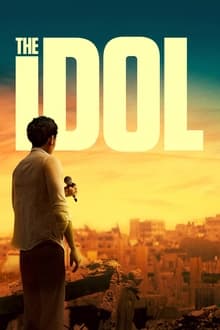
Mohammed Assaf, an aspiring musician living in Gaza, sets a seemingly impossible goal: to compete on the program “Arab Idol.”
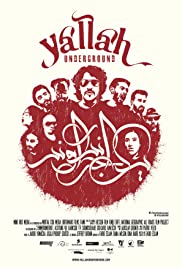
Yallah! Underground follows some of today’s most influential and progressive artists in Arab underground culture from 2009 to 2013 and documents their work, dreams and fears in a time of great change for Arab societies. In a region full of tension, young Arab artists in the Middle East have struggled for years to express themselves freely and to promote more liberal attitudes within their societies. During the Arab Spring, like many others of this new generation, local artists had high hopes for the future and took part in the protests. However, after years of turmoil and instability, young Arabs now have to challenge both old and new problems, being torn between feelings of disillusion and a vague hope for a better future.

An Egyptian gangster, El Ott, divorced his wife, Salma, and left the family soon after his daughter, Amina, was mysteriously kidnapped and lost in Cairo. El Ott discovers that Fathi, a human and organ trafficking monster boss, has recently kidnapped street children from his neighborhood, in order to sell their organs.
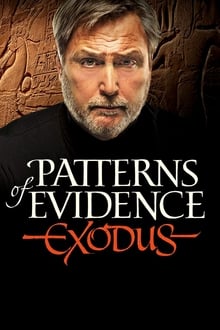
A debate rages over the credibility of the Bible. Most archaeologists today have concluded that there’s no evidence that the Exodus of Israelite slaves from Egypt ever happened. Filmmaker Timothy Mahoney faces a crisis of faith: “Is this foundation event of the Bible really just a myth?” He embarks on a 12-year journey around the world to search for answers. Patterns of Evidence: The Exodus unlocks the mystery of this ancient saga, combining a scientific investigation with a retelling of the Exodus story to reveal an amazing pattern of evidence matching the biblical account that may challenge our understanding of history. It features stunning animations, narration by Kevin Sorbo (God’s not dead, Hercules: The Legendary Journey), interviews with leading archaeologists such as Israel Finkelstein, Kent Weeks, and David Rohl, and guest appearances by Israel’s Benjamin Netanyahu and Shimon Peres.
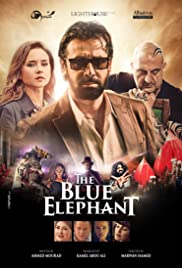
Psychiatrist Dr. Yehia returns to El-Abbaseya Hospital five years after the death of his family. His return coincide with the arrival of a new patient, Sherif, a friend from college, who is accused of murder.
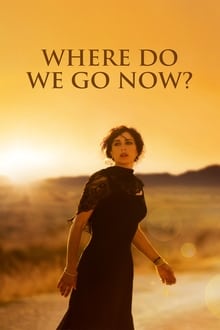
On a remote, isolated, unnamed Lebanese village inhabited by both Muslims and Christians. The village is surrounded by land mines and only reachable by a small bridge. As civil strife engulfed the country, the women in the village learn of this fact and try, by various means and to varying success, to keep their men in the dark, sabotaging the village radio, then destroying the village TV.
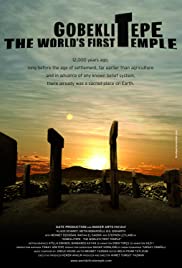
While challenging common beliefs on the history of civilization, the film takes the audience back to 12 thousand years ago, to Gobeklitepe, an ancient site recently found in SanliUrfa, Turkiye. With its brilliant graphics and interviews with experts, the film shows how old taboos come tumbling down as we keep scratching the surface.
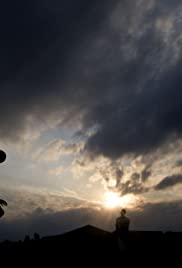
Away from professional stadiums, bright lights, and manicured fields, there’s another side of soccer. Tucked away on alleys, side streets, and concrete courts, people play in improvised games. Every country has a different word for it. In the United States, we call it “pick-up soccer.” In Trinidad, it’s “taking a sweat.” In England, it’s “having a kick-about.” In Brazil, the word is “pelada,” which literally means “naked”—the game stripped down to its core. It’s the version of the game played by anyone, anywhere—and it’s a window into lives all around the world. Pelada is a documentary following Luke and Gwendolyn, two former college soccer stars who didn’t quite make it to the pros. Not ready for it to be over, they take off, chasing the game. From prisoners in Bolivia to moonshine brewers in Kenya, from freestylers in China to women who play in hijab in Iran, Pelada is the story of the people who play.
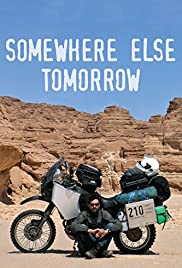
Documentary – War zone borders, engine trouble and the difficulties of making money to survive couldn’t outweigh the thrill of adventure and discovery Daniel Rintz encountered while motorcycling around the world for two and a half years.